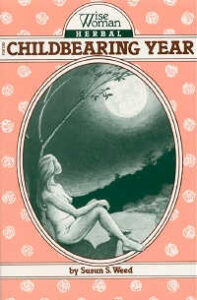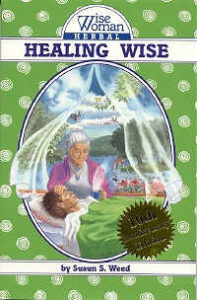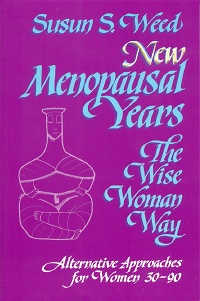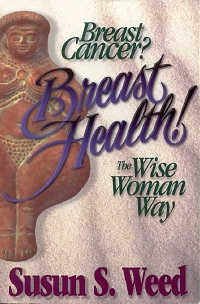Hi Susun,
I am interested in beefing up my lymph system. I’ve heard that poke berries can be useful for this purpose. Could you explain to me the best way to use them?
Karen Joy’s response:
The best way to use poke berries is to dry them and use them sparingly w/o chewing the seed, just swallow the berry whole, for treatment for arthritis and for immune stimulation. Use poke berries sparingly, and with respect, no more than one per day.

I prefer to use Poke root tincture (Phytolacca americana) as it kicks the immune system into gear incredibly fast. I’ve seen chronic infection of many years’ standing resolve after only one dose, and acute infection subside in a matter of hours.
Poke’s effect seems to be focused on the lymphatic and glandular tissues of the throat and chest, making it the perfect counter to inhaled anthrax, which attacks the lymph nodes around the lungs. Poke is a specific against pneumonia and a protector of the lungs. It contains an antibacterial alkaloid and a special antiviral protein. It magnifies the effects of Echinacea and they work wonderfully well together.
Poke root is powerful medicine—in fact, a potential poison—and the dose is very small. One drop of poke tincture may be taken daily for no more than three months as a counter to possible infection. Alkaloids in poke root tincture can accumulate in the kidneys, making extended use risky.
Caution: You can feel spacey and out of your body when taking poke, especially at higher doses. The first few times, take it after dinner and stay home so you can judge your reaction.
Green blessings, Karen Joy
(apprentice to Susun Weed)
Wise Woman Spiral ©iStockphoto.com / Chuck Spidell |
Whssshh ©2002
Wendy Wilkerson
-
Susun S. Weed has no official diplomas of any kind; she left high school in her junior year to pursue studies in mathematics and artificial intelligence at UCLA and she left college in her junior year to pursue life.
Susun began studying herbal medicine in 1965 when she was living in Manhattan while pregnant with her daughter, Justine Adelaide Swede.
She wrote her first book -- Wise Woman Herbal for the Childbearing Year (now in its 30th printing) -- in 1985 and published it as the first title of Ash Tree Publishing in 1986.
It was followed by Healing Wise (1989), New Menopausal Years the Wise Woman Way (1992 and revised in 2002), Breast Cancer? Breast Health! The Wise Woman Way (1996), Down There: Sexual and Reproductive Health the Wise Woman Way (2011), Abundantly Well - Seven Medicines (2019).
In addition to her writing, Ms Weed trains apprentices, oversees the work of more than 300 correspondence course students, coordinates the activities of the Wise Woman Center, and is a High Priestess of Dianic Wicca, a member of the Sisterhood of the Shields, and a Peace Elder.
Susun Weed is a contributor to the Routledge International Encyclopedia of Women's Studies, peer- reviewed journals, and popular magazines, including a regular column in Sagewoman.
Her worldwide teaching schedule encompasses herbal medicine, ethnobotany, pharmacognosy, psychology of healing, ecoherbalism, nutrition, and women's health issues and her venues include medical schools, hospital wellness centers, breast cancer centers, midwifery schools, naturopathic colleges, and shamanic training centers, as well as many conferences.
Susun appears on many television and radio shows, including National Public Radio and NBC News.
View all posts












0 Comments